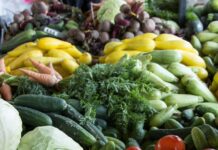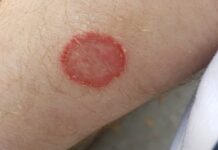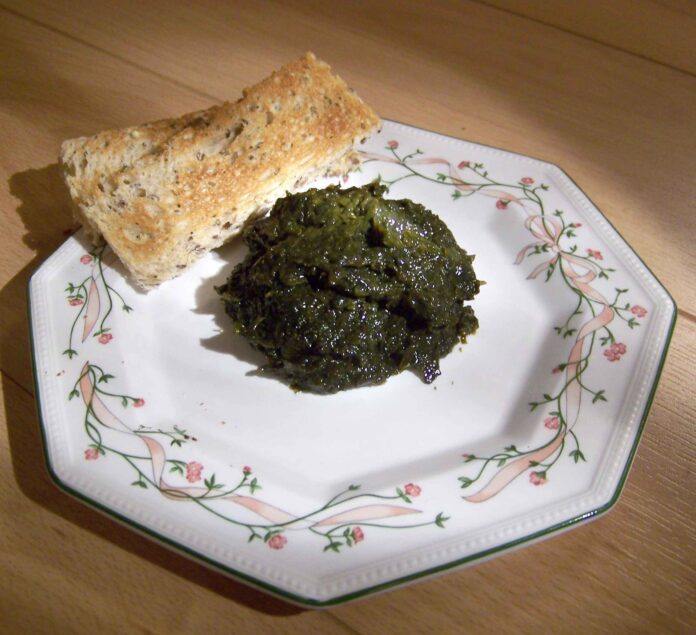The Pembrokeshire Beach Food Company is spearheading the launch of a new national day dedicated to the joys of laverbread – a traditional Welsh seaweed delicacy that can be used in everything from quiches to cooked breakfasts.
Laverbread is the cooked version of ‘laver’ – porphyra seaweed – a diaphanous red algae found abundantly along Wales’ rocky coastline. Cooked for many hours, it produces a green, gluey sludge that is a delicacy for many, but a challenge to others. Needless to say, it tastes much better than it looks. Jonathan Williams founded his award-winning business on a passion for laverbread. Quitting a desk job in Swindon in 2010, he returned to Wales to run a food stall dedicated to Welsh seafood delicacies, particularly laverbread foraged from his local coastline.
Over the years the business grew from a pop-up market stall to a permanent van at Freshwater West, where people queued to buy treats such as lobster rolls, crab rolls and breakfast buns stuffed with bacon, egg, cheese, seaweed butter and laverbread patties. Now Jonathan has taken on the lease at The Old Point House, an iconic old smugglers’ inn reached across a tidal causeway on Angle, Pembrokeshire. Work is underway to give the venerable pub a new lease of life – and it will include a permanent Pembrokeshire Beach Food Company presence via a repurposed boat selling street food in the pub garden. The Pembrokeshire Beach Food Company also has an online shop selling deli goods such as dried laver (Welshman’s caviar), Môr Ketchup (seaweed ketchup sauce); seaweed butter, seaweed pesto, and more – and in 2017 Jonathan launched Barti Rum, a seaweed spiced rum.
Jonathan’s passion for laverbread inspired him to launch National Laverbread Day, and for this year’s inaugural event he will be sharing laverbread recipe videos, competitions and special offers online and handing out free laverbread samples with beer bought at The Old Point House. There will be opportunities to win free laverbread via the company’s social media accounts, and an online laverbead cooking competition with prizes given to the best recipes shared on social media.
Jonathan is also inviting chefs, restaurants and food shops to join in by holding their own events or putting laverbread on the menu for the day.
Above all, Jonathan wants people to have fun discovering this delicious but often overlooked ingredient. He chose April 14 as National Laverbread Day because it is the same day the Japanese celebrate “Mother of the Sea Day” in honour of Kathleen Mary Drew-Baker, whose research into the cultivation of porphyria seaweed led to a commercial breakthrough for the Japanese Nori (laver) industry.
“For too long this laverbread has been cast aside as a footnote in the culinary world,” says Jonathan. “But not anymore: from now one this incredible ingredient shall be celebrated, revered around the world for the marvellous delicacy it is. So cast aside your inhibitions: life is an adventure, food is adventure. Be bold, be brave and make this day and everyday forth the day of laverbread, born from land as ancient as the oceans themselves. To me laverbread has to be one of the food wonders of the world. The use of laverbread has declined and we believe that this is just not acceptable: this food wonder should be celebrated as much as possible.”
He adds that while laverbread is relatively rare in shops outside Wales, it is available on Welsh markets, especially Cardiff and Swansea covered markets, direct from producers such as Selwyn’s (www.selwynsseaweed.com), Parsons (www.parsonspickles.co.uk), Spencer at Gower Coast Foods, from most decent delis and independent food shops in Wales, and of course from The Pembrokeshire Beach Food Co.
“You can also buy it from as any worthwhile fish monger in Wales,” he adds. “And even if you live outside Wales, there are still plenty of ways to get delicious laverbread by post. If you’re unsure what to do with it, the Pembrokeshire Beach Food Company has some great recipe ideas you can try. So prepare ahead: stock up on laverbread and join us on April 14th online or in person at The Old Point House to celebrate this food wonder on National Laverbread Day.”
Jonathan’s laverbread facts
- Although laver is found around Britain’s coastline, the production of laverbread is a primarily a Welsh tradition.
- Laver is harvested from rocks in the wilds of West Wales, which has the second largest tidal range in the world and takes the full force of the Atlantic storms.
- Not many other foods take as long as laverbread to cook (typically about 8 hours).
- No other food looks so unappealing after several hours of cooking.
- It is a powerhouse of nutrients, vitamins and minerals.
- It has been dubbed “future food” as it requires no land, freshwater, pesticides or fertilizers and can grow up to 5mm a day.
- Its versatility is only now being discovered in modern day cooking.
- It tastes sublime, or, as the Japanese say has “essence of deliciousness” – a satisfying, savoury umami flavour.
- It is the untamed mysterious lady of the seaweed world, constantly changing its mind as to where it grows and when it grows. I spend my days endlessly chasing it around the coastline.
- Laver has one of the strangest and most complicated life cycles: it can be both male and female, and one stage of its life it is neither. You could even call it the original non-binary life form.
Free recipe: Traditional Laverbread Patties
Serves 2
Ingredients:
- Laverbread (either from a shop or harvested by yourself) x 100g
- Oats (large or medium or fine) 20g ish
- Salt and Pepper to taste
- Bacon fat (traditional or olive oil)
Method:
- Place your frying pan on a low-medium heat, and put either your bacon fat or oil in to warm up.
- While the fat is heating up, mix the laverbread in a bowl with your oats (Traditionally a fine grade oatmeal was used. I prefer the larger oats but this is personal taste), until you get a good consistent patty. If it’s too dry add more laverbread, or if it is too sticky, add more oats.
- Add a pinch of salt and pepper.
- Use a tablespoon and drop the laverbread and oat mix into the frying pan and shape it with the spoon into a round patty around 0.5mm thick
- Cook for around 5 minutes on each side or until golden and crispy.
- Serve hot and enjoy
I like mine with poached eggs and smoked mackerel.
Help keep news FREE for our readers
Supporting your local community newspaper/online news outlet is crucial now more than ever. If you believe in independent journalism, then consider making a valuable contribution by making a one-time or monthly donation. We operate in rural areas where providing unbiased news can be challenging. Read More About Supporting The West Wales Chronicle


























